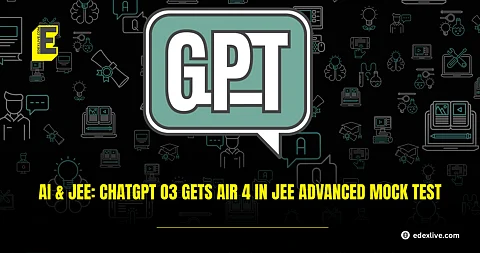

Anushka Aashvi, an engineer from the Indian Institute of Technology (IIT) Kharagpur, conducted an intriguing experiment by testing OpenAI’s ChatGPT o3 on the Joint Entrance Exam (JEE) Advanced 2025 paper, one of India’s toughest entrance exams.
What began as a casual test yielded extraordinary results as the Artificial Intelligence (AI) model scored 327 out of 360, securing a hypothetical All India Rank (AIR) 4, placing it among the top performers in the highly competitive exam.
Moneycontrol reported that Anushka detailed in her blog Heltar how the experiment mirrored real exam conditions.
She instructed ChatGPT o3 to act as a JEE aspirant, solving each question independently without web searches, coding tools, or hints.
To prevent memory bias, each question was posed in a new chat session. The AI achieved perfect scores of 60 in both Chemistry and Mathematics in the second phase, with minor errors only in Physics and earlier sections.
It excelled in complex areas, effortlessly tackling multi-concept problems and advanced calculus. It demonstrated remarkable proficiency in interpreting skeletal chemical structures, a task that challenges even well-prepared students.
Areas of weakness
Despite its near-flawless performance, the AI faced difficulties with visually oriented questions, such as those involving graphs and tools like the Vernier scale. One visual question took nearly ten minutes to process, yet the AI still answered incorrectly.
The JEE Advanced is the gateway to India’s prestigious Indian Institutes of Technology (IITs), with only the top 2.5 lakh candidates from over 15 lakh JEE Mains aspirants qualifying to compete. Of these, just 17,000 secure admission.
An AI achieving a near-perfect score underscores its potential to compete with human intellect in highly specialised domains.
